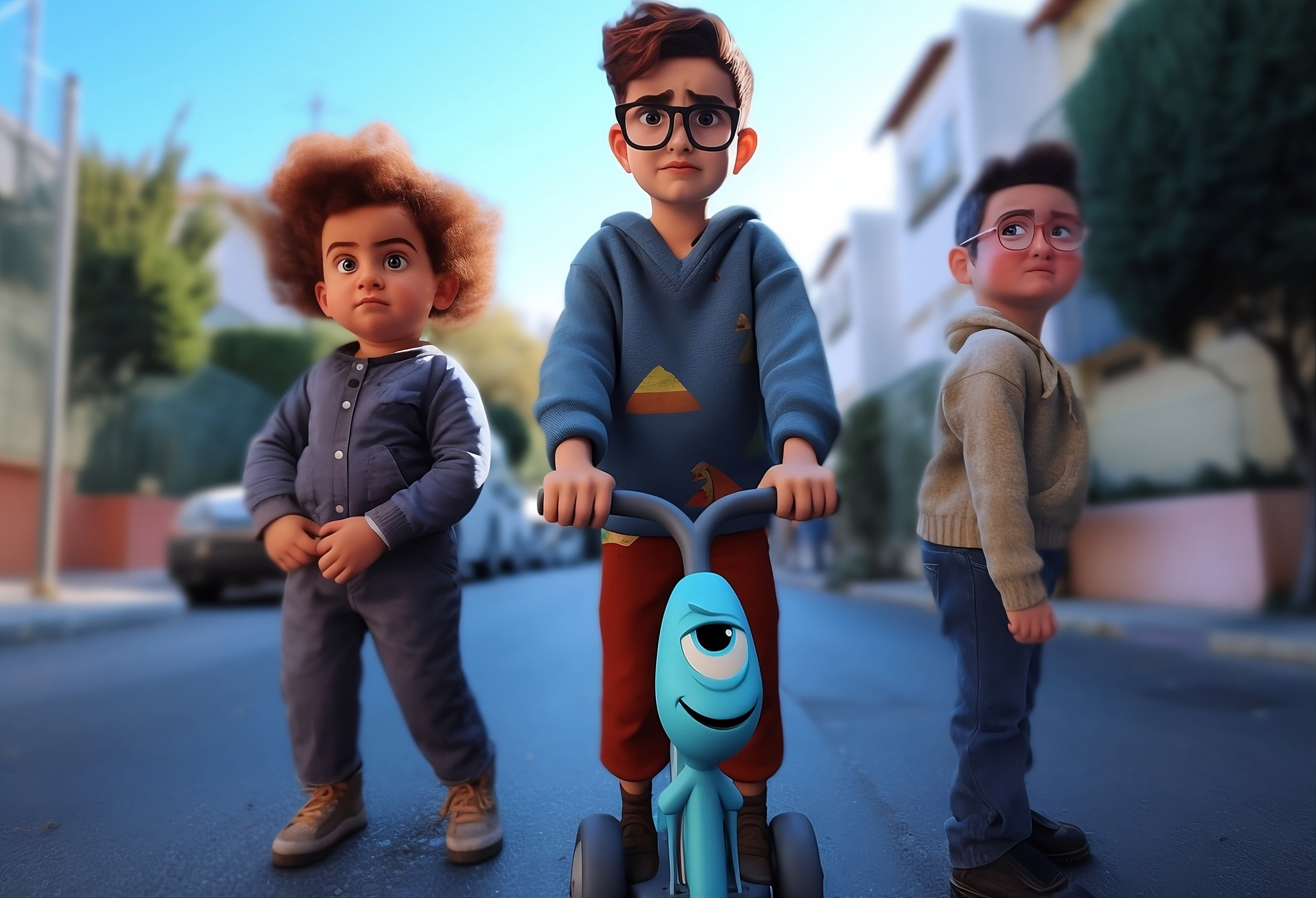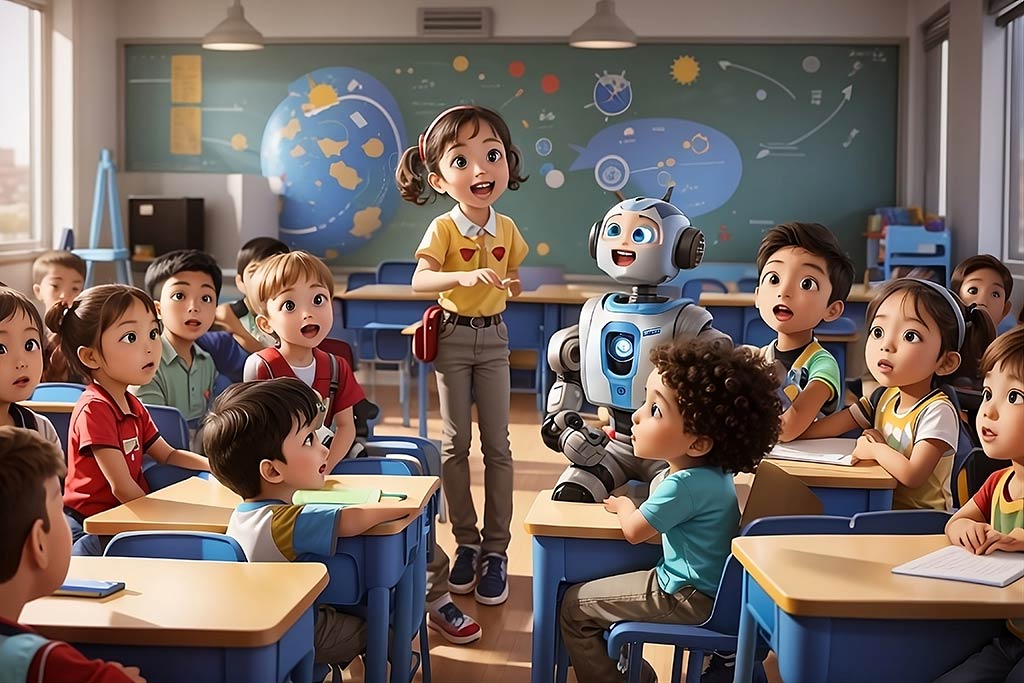None can deny that we find ourselves in the era of Artificial Intelligence. My two sons are two toddlers who are growing up in this era and as I watch them playing with their toys, I can’t help but worry about how Artificial Intelligence will affect their generation, the so-called Gen Alpha.
Gen Alpha you said?
Generation Alpha, which includes people born after 2010, represents the youngest generation that currently walks (or, in some cases, crawls) on this planet.
The children of Gen Alpha will grow up in a world where Artificial Intelligence will profoundly shape their experiences and way of life. Similar to how previous generations experienced the advent of new technologies, like my generation with the spread of the Internet, so too will the members of Gen Alpha be the first to experience a future intertwined with Artificial Intelligence. This new medium will undoubtedly shape their future in ways that, right now, we can only (barely) imagine.
How will AI influence the lives of Gen Alpha?
Generation Alpha will be immersed in a world filled with virtual assistants, smart systems and appliances that utilise Artificial Intelligence’s capabilities promising to simplify their lives, prioritise efficiency, and improve healthcare and safety. They will encounter a digital future that feels just as tangible as their current reality, thanks to an array of gadgets and software equipped with interaction algorithms.
Artificial Intelligence will assist them with everyday tasks, addressing their inquiries and providing personalized suggestions tailored to their needs, demands and interests.
Entertainment
Take the entertainment industry, for example. Remember when we were young and read choose-your-own-adventure books where we got to pick the story’s path by turning to the corresponding page? Those books had a set number of pathways the reader could take, eventually leading to a specific ending for the story. But those pathways were limited. With Artificial Intelligence, this no longer exists. Think of a virtual “AI-powered” book where the reader’s choices are not restricted to pre-determined paths. With the help of Artificial Intelligence, an endless number of possible scenarios can be created, dynamically adapting the story’s progression based on the reader’s decisions. Thus, every reading becomes a unique adventure without limitations, opening up new paths and unexpected twists in the world of imagination. Similar changes are expected in the video game and film industries.
Communication
In addition to entertainment, Artificial Intelligence is also going to change existing communication norms. Until now, you had to speak a common language to communicate with someone. But this need becomes obsolete with the use of devices like Apple Vision Pro. Imagine an everyday situation: You meet someone from another country, and instead of worrying about the difficulty of communicating due to language barriers, you simply use your device. Apple Vision Pro (or any other similar device) will automatically translate the words you say, allowing you to communicate in real-time in any language. This advancement paves the way for enhanced cross-border and multilingual communication, eliminating the obstacles posed by language differences.
How will AI impact the education of Gen Alpha?
Of course, not only the entertainment and communication of Generation Alpha (and subsequent generations) will be radically affected by the widespread adoption of Artificial Intelligence. Several fields such as sports, workplace, engineering, medicine, and education shall change dramatically.
AI is certain to reshape how Gen Alpha learns.
The good
Adaptive algorithms controlling Large Language Models (LLMs) like ChatGPT will open new avenues for personalised learning experiences, complementing traditional teaching frameworks.
In fact, students older than Gen Alpha are already using Artificial Intelligence in diverse and imaginative ways, and it hasn’t even been a full year since the release of ChatGPT, the most widely used LLM.
I can tell you, with complete certainty, due to my involvement in specific software development initiatives, that you can expect educational platforms that will be able to provide customised experiences tailored to each student’s unique needs. These platforms will be able to identify areas where the student needs improvement, offering targeted feedback and additional, engaging material for improvement, thus enhancing the overall learning process. This individualized approach will empower Generation Alpha members to reach their full academic potential.
The bad and the ugly
Whether we like it or not, previous generations responsible for teaching the children of this generation will be forced to change traditional educational approaches to take advantage of the benefits of Artificial Intelligence. So even if now, in October 2023, it seems unrealistic, given the rapid pace of daily developments and improvements in LLMs, in a few years, if not months, the children of Generation Alpha will be unable to function without the support of Artificial Intelligence educational tools. One can easily understand that we are balancing a fine line here. For this reason, a proper regulatory framework is required to define the rational use of Artificial Intelligence by all stakeholders, teachers and students. Unfortunately, although we are heading towards the first year of the spread of Artificial Intelligence, right now, only suggestions through unofficial guides have been released.
Of course, given how overwhelming developments are daily, I am afraid there will be a period of anarchy in use, resulting in a temporary cognitive regression for some. This may be the necessary price we have to pay for the sudden and massive spread of Artificial Intelligence in society.
Based on the above, one can easily mistake Generative AI with Generation AI
What should you do?
What the future holds is hard to predict. Opinions vary, from fear of “singularity” and robot dominance to optimistic visions of a happy and romantic future. Unfortunately, this article can’t foresee too far, perhaps up to the next 5-6 years. One thing is sure, though. ChatGPT and other LLMs, like Bard and Claude, were just the beginning or, better yet, the launching pad.
Many applications already function using Artificial Intelligence algorithms, from creating presentations and authoring content to generating images and videos. If you do not want to be left behind developments, which, as we said, are rapid, subscribe to our YouTube channel and follow us on Facebook so you do not miss anything.
In the meantime, if you already use Artificial Intelligence apps for your class, be sure to take part in our annual survey, which this year focuses on collecting and evaluating the top 100 Artificial Intelligence tools for the classroom. You can contribute your insights within 5 minutes and be a part of creating the guide!

